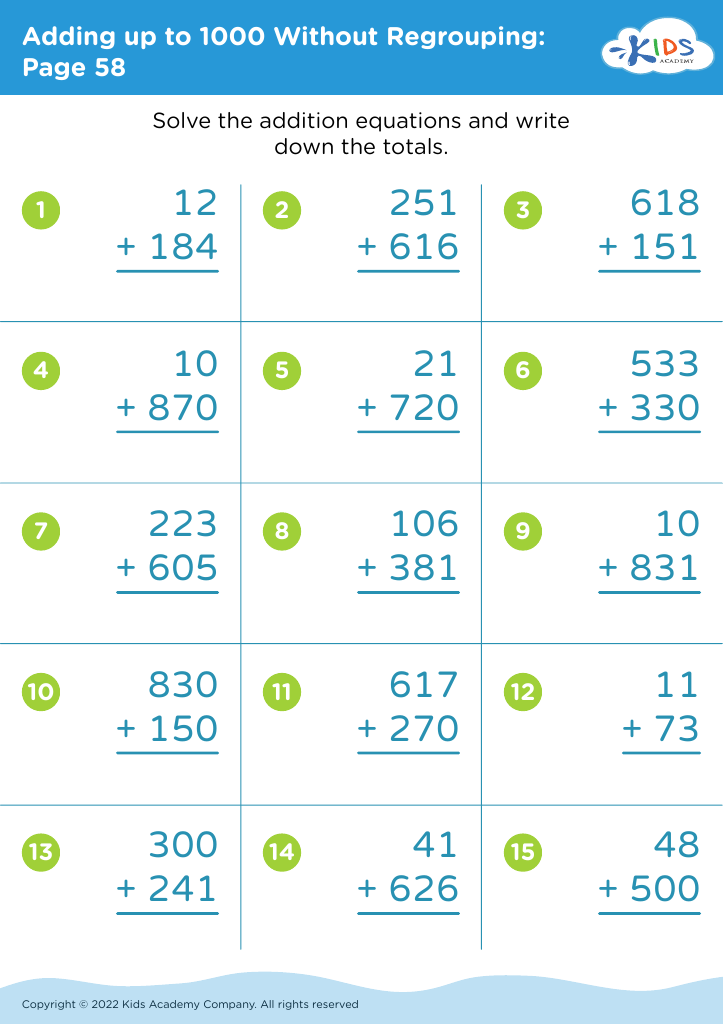Counting practice Adding up to 1000 Without Regrouping Worksheets for Ages 6-7
4 filtered results
-
From - To
Enhance your child's arithmetic skills with our "Counting Practice Adding up to 1000 Without Regrouping Worksheets" designed for ages 6-7! These engaging activities help young learners master addition up to 1000 without the complexity of regrouping. Each worksheet offers fun, age-appropriate problems that build confidence in math through consistent practice. Perfect for classroom and home learning, these worksheets reinforce vital counting and calculation skills in a stress-free way, making math enjoyable and accessible. Help your child achieve new milestones in their mathematical journey with our expertly crafted, kid-friendly resources available at Kids Academy!
Counting practice and learning to add up to 1000 without regrouping is crucial for children aged 6-7, as it forms the foundational bedrock for their future math skills. At this age, students are building numerical fluency and developing a deep understanding of how numbers interact. Mastering addition within this range helps kids gain confidence and a sense of achievement in their mathematical abilities.
Parents and teachers should care about this practice because it directly enhances cognitive development. Addition without regrouping simplifies the learning process so children can focus on mastering the basic concepts without the added complexity of carrying over numbers. This ensures children are not overwhelmed and are instead gradually prepared for more challenging tasks, such as regrouping or subtraction.
Moreover, these skills correlate with improved problem-solving abilities and logical thinking. Math proficiency cultivated at this stage supports academic performance in other subjects where logical reasoning and structured thought processes are beneficial.
Engagement in such math activities at home bridges the gap between school learning and practical application, helping children recognize the real-world relevance of these skills. This early investment in mathematical education fosters a positive attitude towards learning and equips children with the tools they need for academic and life-long success.














